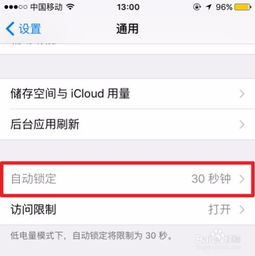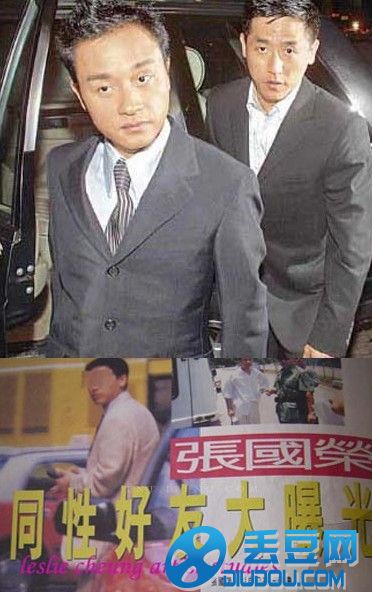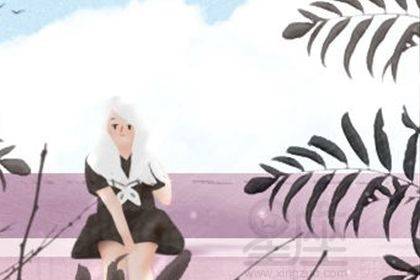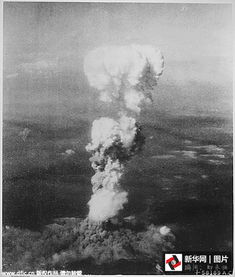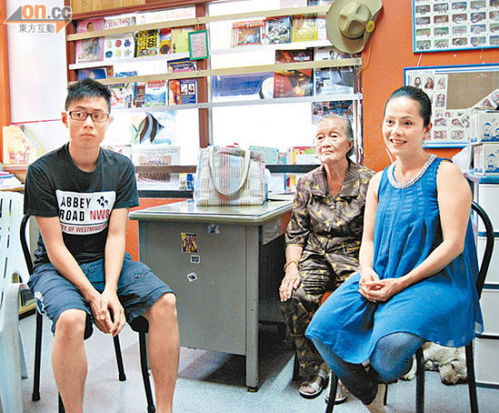刮痧英文电影(电影刮痧的经典英文台词)
- 作文
- 2023-05-05 13:29:01
- -
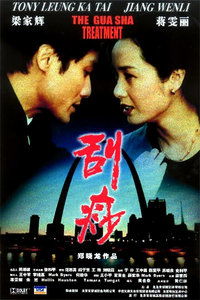
《刮痧》的结局是什么呢?
电影《刮痧》讲述的是一个在美国生活了八年的中国家庭,因为孩子的一次意外发烧,刚来美国,不懂英文的爷爷用了中国传统的刮痧治疗方法为小孙子治病,但在医院里被护士发现了因刮痧而留下的血痕,怀疑是其家人虐待孩子所致。于是,儿童福利院便把孩子的父亲许大同告上了法庭,在法庭上,许大同因为无法解析刮痧是中国的一种传统治疗法,又因为律师的曲意刁难,许大同最终被判决与孩子隔离,并且搞得失去了工作、朋友和与妻子分居,幸亏许大同的朋友去了一趟中国,知道了刮痧是一种治疗方法,为其作证,故事也就有了完满结局。 许大同一家在美国的遭遇,在很大程度上反映了华人在外国生活的种种不适,而这些不适很大程度上是由于中西文化的差异造成的,随之而来的必然有隔阂,对立与冲突。首先是医学领域的认识差异。刮痧是故事冲突引发的导火索,刮痧疗法在中国民间很常见,是中医的一种治疗方法,确实能够治愈一些常见病。但是,这种疗法搬到美国,就成了大同对孩子施以暴力的罪证。 二是法律观念的不同。在西方社会里,法律存在于每一个角落,每一种纠纷都通过法律途径来解决,而每一件事实都是要讲求证据的。如美国的法庭及儿童福利院虽被大同的满腔激情,真挚而忘情的诉说所震慑,却仍要求有“爱的证据”,以供法庭判决。而中国人比较看重的是人情冷暖,尤其是对于亲情特别看重。 三是对尊重的理解不同。在故事开头,许大同因为自己的儿子没有向老板的儿子道歉,便用手打了自己儿子一下,老板看了觉得不可思议,许大同对约翰解释这一举动说:“我为什么打我儿子,那是出于我对你的尊重,那是我给你面子。”这样的解释让这个典型的西方人迷惑不已,他并不知道眼前这个东方小伙子的这一耳光竟然是出于这样的逻辑,作为西方人的约翰,他是无法理解这个东方爸爸打他儿子时的那种复杂心情的,他只知道,打人是违法的,这是对人权的不尊重。这两种截然不同的观念,说明这样一个道理:由不同国家和不同民族文化背景形成的观念上的差异,在相互交织、碰撞中必然发生尖锐的冲突。四是对爱,对家庭的理解的差别。这也是《刮痧》中冲突的本质所在。许大同对付美国社会的生活和工作都游刃有余,这并不意味着他在成长中濡染的中国传统文化观念就已经烟消云散。在许大同的心里,家庭也是他的精神支柱。他所做的一切,都是为了这个家的幸福与团圆。三世同堂,其乐融融,是他奋斗的动力和意义所在。为了爷爷能在美国拿到绿卡,他还把给孩子刮痧这事称是自己刮的;为了儿子能回家宁愿分居;为了爷爷能看一眼孙子,偷偷把儿子从福利院了带出来;在法庭上,许大同爱子心切,甚至和对方辩护打了起来;为了给孩子送圣诞礼物,不顾危险爬到九层,完全有可能“坠楼而亡”…… 爱就是付出和负责任,可能会表现为严厉,表现为分居,甚至表现为欺骗,表现为劫持……正是这种爱把孩子和父亲以及这个家和二为一体,这种爱超越了其自己的尊严,平等,自由和选择自身幸福的权利。 而在西方人眼里这些都是不可思议的,甚至是犯法的! 这部《刮痧》,让我们意识到了中西方文化差异是如此之大,若不在了解双方的文化前提下,引出的问题确实令人头疼。看来世界的大同文化要经历长时间的碰撞,相互交织,尖锐的冲突,磨合,才能融合与发展的。
[img]急! 求英语牛人帮忙翻译几段话 关于电影《刮痧》
《刮痧》以中医刮痧疗法产生的误会为主线,讲述了华人在国外由于东西方文化的冲突而陷入种种困境,最后又因人们的诚恳与爱心,困境最终被冲破的故事。
上述语句可以翻译:Based on the misunderstanding of Guasha therapy in traditional Chinese medicine (TCM) , Guasha tells the story of Chinese people who are in a lot of difficulties because of the conflict between Eastern and Western cultures.

《刮痧(2001)》百度网盘免费在线观看,郑晓龙导演的
链接:
提取码: raze
《刮痧》
导演: 郑晓龙
编剧: 马克·拜尔斯、王小平、霍秉全、薛家华
主演: 梁家辉、蒋雯丽、朱旭、霍利斯·休斯敦、塔玛拉·特恩特、斯蒂芬妮·沃格特、乔·尔克、卡特·道森、安东尼·穆林、马歇尔·菲尔、苏珊·弗莱、迈克·凯彻、乔·梅、桑尼·吴、戴夫·舒兹
类型: 剧情、家庭
制片国家/地区: 中国大陆
语言: 英语、汉语普通话
上映日期: 2001-05(戛纳电影节)
片长: 100分钟
又名: Gua Sha Treatment、Gua Sha
电脑游戏设计师许大同(梁家辉饰)与妻子简宁(蒋雯丽饰)在美国奋斗了8年,事业有成。一次意外却令美好的家庭变得愁云惨雾:5岁的儿子生病了,老父亲(朱旭饰)用传统的中国民间刮痧帮孙子治病。大同夫妻继而被控告虐待儿童,一个又一个物证人证令夫妻俩百口莫辩,西医根本无法了解这种传统中国疗法。因为这件事,父子与夫妻都不得已的分开了。大同伤心欲绝,面对儿子与妻子,他能做什么为自己伸冤呢?事情又能否得到圆满的解决呢?
电影刮痧英文观后感
电影刮痧英文观后感 (一)
Gua Sha is a movie about the differences between American and Chinese culture. Xu datong is a video games designer in St. Louis. When his father visits from China, he performs Gua Sha (a Chinese traditional treatment) on his grandson, which leaves bright red marks on the skin and causes a lawsuit of child abuse. In the court, Datong loses his mind so that finally he loses custody of his son. I think this scene is shocking and thought-provoking to most of the Chinese audiences. But the most impressing scene to me is the ending. Datong wants to see his son in Christmas eve, he has to climb a pipe to the ninth floor which his son lives. I think the pipe is not only a pipe, but also a gap, a deep gap between American and 5000-year Chinese culture. He wants to climb over the gap and he will never succeed, perhaps no Chinese people really could succeed.
电影刮痧英文观后感 (二)
It's about assimilation into American culture, and not assimilation in an“International” city, like SF or NY or LA or Chicago, but St. Louis, MO (actually shot there)。 Really great acting, interesting story
Gua Sha is a treatment in traditional oriental medicine in which a wooden board repeatedly slides across the patient's acupuncture acupressure massage points. It works in similar principles like that of acupuncture acupressure massage. This method would inevitably leave bruise on the skin, and the story
begins here, when the visiting grandpa who does not speak any English used this traditional practice to treat the grandson when both son and daughter-in-law were at work.
Sadly, in US, this is a story that repeats itself many times in the area where many oriental immigrants lives and all of these are due to simple misunderstanding between cultures.Gua Sha: Step-by-Step, by Arya Nielsen.If an acupuncturist is trained in Classical Chinese medicine, they will do this technique in their practice for pain, and for acute or chronic illness.
电影刮痧英文观后感 (三)
Chinese immigrants struggle to hold onto their American dream after the husband's father (Xu Zhu) comes for a visit from mainland China and gives a si-mp-le Chinese Medicine therapy called Gua Sha to his grandson.
Da Tong (Tony Leung Ka Fai) is the father who is trying to integrate his Chinese cultural beliefs into his daily American reality, especially when dealing with his bo(Hollis Huston) and best friend, who is too quick to believe the worst about Da Tong's treatment of his son, Dennis. Da Tong's failures show his confusion about the differences between his original Chinese culture and his new American home. Even within his family there is conflict because Grandfather can't speak English and is excluded from many conversations because Mother (Wenli Jiang) wants only English spoken in her home for the benefit of her American born son. Da Tong and his wife are very well educated and understand that their child's best chances for succein America, and for him not to experience the same troubles they've had during the past 8 years, are to speak without an accent. They even go so far as to insist the boy use a fork and knife instead of chopsticks, even when it's obvious they are still eating Chinese style food, served in the normal way: communal dishes for the food and smaller, individual rice bowls for each person. Mother seems a bit inflexible in her insistence on being as American as possible, while Da Tong's cultural leanings are just as strongly Chinese, although not by conscious choice.
Da Tong's love for his son is tested severely when Da Tong tries to balance it against respect for his boss. (m.taiks.com)When Da Tong's son hits his boss' son, Da Tong insists on an apology that seems unnecessary and makes Da Tong look stubborn and uncaring. Da Tong gives his boy a light rap on the head when he refuses to apologize and the boy cries to his mother that the reason he hit his playmate was that the other boy called Da Tong stupid, one of many examples of doing the wrong thing to protect your family.
The conflict arising from doing the wrong thing out of love or respect for one's family or closest friends continues throughout the movie, and every way Da Tong turns, he finds failure and encounters both obvious and subtle forms of anti-Chinese racism. Even Chinese folklore about the Monkey King, Sun Wu Kong, that Da Tong incorporates into a video game he designed is used to provoke his pride when he's vulnerable and fearing for the loof his son. Da Tong is misunderstood by everyone, family, friend, and foe, even though he has only the best intentions, and he carries the responsibility quite heavily, ma-ki-ng one wrong turn after another.
Gua Sha (The Treatment) shows how a person's cultural beliefs are so deeply set within oneself that it is usually impossible to examine why you do most anything, from how you dreand talk to whom you love and respect and how you show it. The invisible nature of one's cultural beliefs also makes it difficult to impossible to explain yourself to others when questioned. Da Tong experiences an excruciatingly painful and difficult struggle while trying to protect his son, an ordeal that forces him to examine the validity of some of the most vital things he thought he knew about his identity, his Chinese culture, and the new American world he'd chosen as his home.
The movie showed me how normal it is for people to look for ways that their culture is superior to others' and how the misunderstandings arising from different cultural perspectives can seem very large, but can be nullified with si-mp-le, 2-sided explanations when people are willing to listen.
It appears this film is not readily available in the USA, but it's the best I've seen at highlighting the differences between American and Chinese culture. Parts of the movie's dialog are only in Chinese and I've yet to find a DVD with English subtitles, although it's easy to get the gist of what's going on during those short passages. The credits are a combination of Chinese and English, holding true to the integration of both worlds. I've noticed some important roles are not credited here on IMDb, such as Judge Horowitz, who was played by Alexander Barton。
求一篇400字左右的电影《刮痧》英文观后感,体现中西方文化差异,语法不用太准确,高中生水平即可
《刮痧》这部电影重点不是讲怎么刮痧,刮痧有什么好处,而是讲因为刮痧致使一个家庭经历具体的苦难。电脑游戏设计师许大同与妻子简宁在美国奋斗了8年,事业有成。一次意外却令美好的家庭变得愁云惨雾:5岁的儿子生病了,老父亲用传统的中国民间刮痧帮孙子治病。大同夫妻继而被控告虐待儿童,一个又一个物证人证令夫妻俩百口莫辩,西医根本无法了解这种传统中国疗法。因为这件事,父子与夫妻都不得已的分开了。圣诞节那天,门卫不让大同去家里见简宁和他儿子,无奈之下,他只好冒着生命危险爬水管爬上九楼,并在那晚法院撤销了对抚养孩子的审判,最终皆大欢喜。
观看这部电影时,给我最大的感触就是中西文化的差异。老父亲是爱他的孙子的,他孙子生病了老父亲给他刮痧,在背上留下的痕迹却被人认为是这孩子受了虐待,这是美国人不懂得刮痧是什么造成的;对待孩子的问题上,中国人将孩子当做是自己的私人财产,可以随时对孩子进行管教,但在美国,孩子却被当成是社会财产,一旦孩子受了伤害,孩子的父母就会被剥夺抚养权,由儿童福利中心进行养育,在大同的颁奖会上,他的儿子打了他老板的儿子,大同让他儿子道歉,但他却不道歉,大同打了一下他儿子的头,大同认为这是对他老板的尊重,当然,中国人大多都是这样,在不分三七二十一先打了自己的孩子再说,这表示自己没有教养好,打孩子是对别人的尊重,但美国人却不这么认为,他的老板看到大同打他儿子表示很惊讶,并且认为教养孩子跟尊重他人没有关系。大同为了给他的父亲办绿卡,在听证会上说了是他给他的儿子刮痧的,老父亲知道了这件事后,他自己一个人到了大同老板昆兰的家里,跟他讲了是他刮痧的,而不是大同,昆兰问简宁为什么大同要说是他刮痧的,简宁回了他一句:因为他是中国人。这些都是中西文化碰撞后产生的火花!
原文地址:,转载请保留地址,谢谢
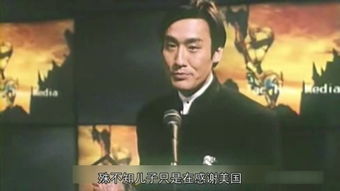
本文由作者笔名:狼族霸者 于 2023-05-05 13:29:01发表在本站,原创文章,禁止转载,文章内容仅供娱乐参考,不能盲信。
本文链接:https://www.e-8.com.cn/zw-140199.html
 狼族霸者
狼族霸者





